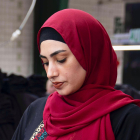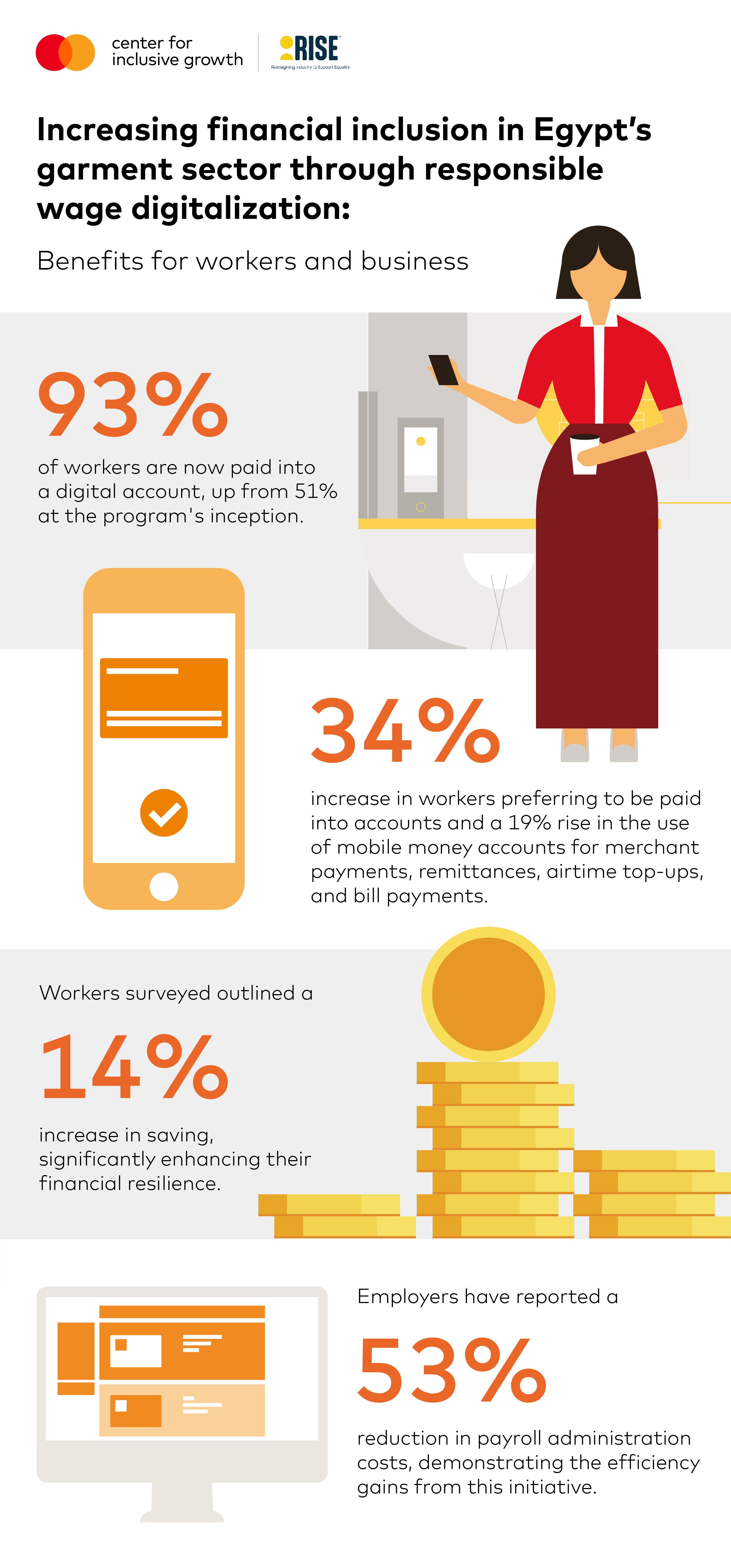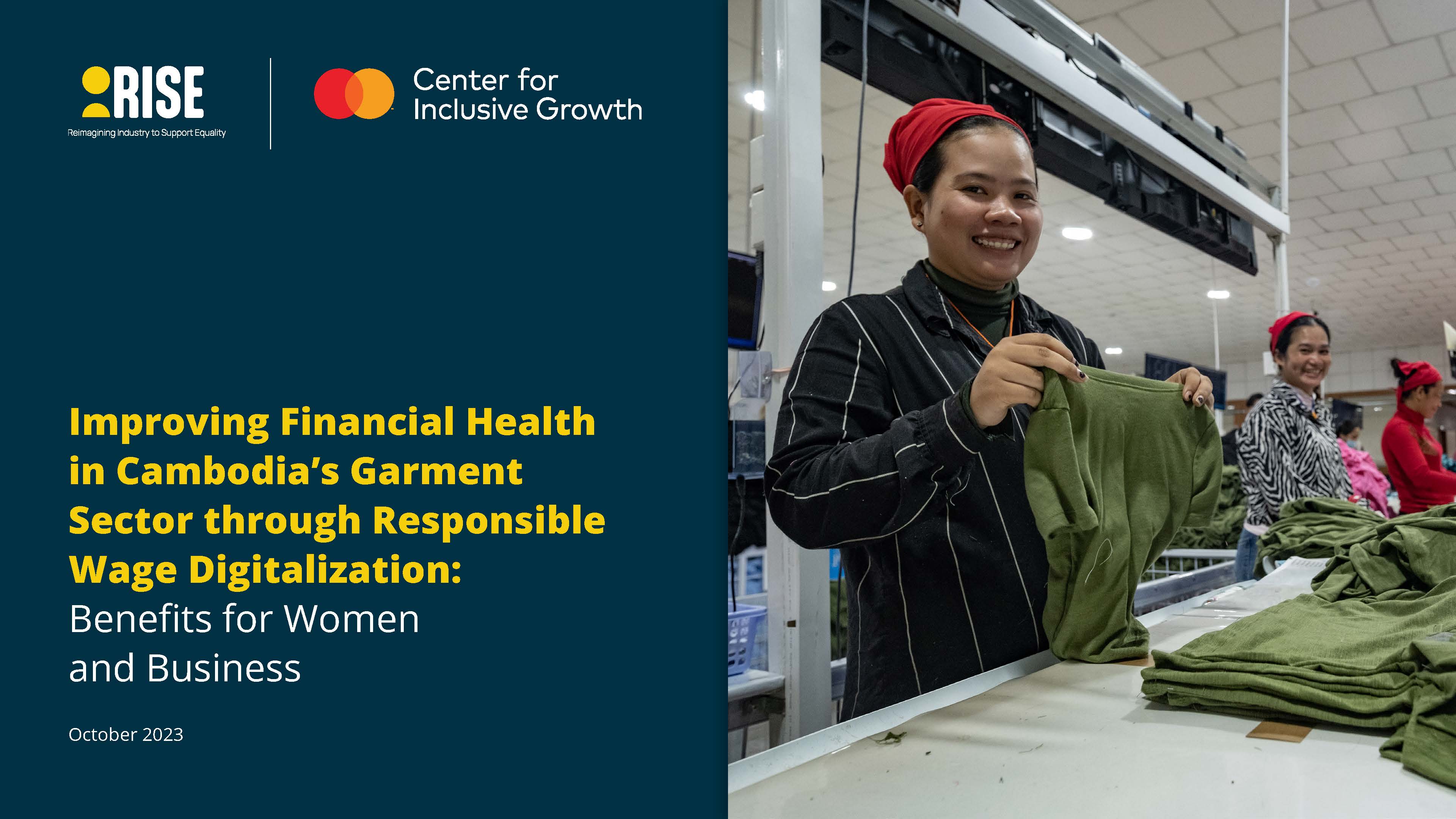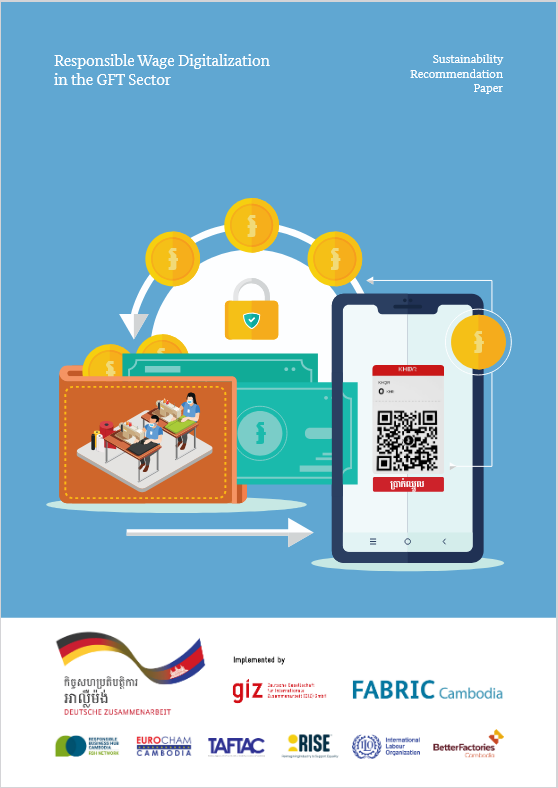Financial health
A proven collaboration with the garment industry and financial sector to improve financial inclusion and resilience for workers, especially women, and deliver shared economic value.

A proven collaboration with the garment industry and financial sector to improve financial inclusion and resilience for workers, especially women, and deliver shared economic value.
RISE Financial Health supports workers to benefit from financial products and services. This includes delivering training to build their financial capability and resilience. Our approach considers the particular needs of women workers to ensure that everyone benefits.
RISE collaborates with the garment and financial sectors to improve the financial health and resilience of workers, including through responsible wage digitalization.

Since 2012, RISE has partnered with global brands, buyers and financial service providers to support 244 workplaces across 10 markets, reaching over 420,000 workers. This has led to the following benefits for workers and businesses:
More workers use mobile money: 88% of women and 84% of men now have a mobile money account (up from 47% and 51%). They mainly use it for remittances, airtime, and bill payments.*
More workers save regularly: 82% of women and 80% of men save each or most months (up from 57% and 54%).*
More families manage finances together: 64% of women and 74% of men make spending decisions as a family (up from 48% and 51%).*
Improved efficiency and transparency in the Garment Sector 50% reduction in admin costs dedicated to preparing and disbursing payroll
*Insights based on Mastercard’s analysis of interviews conducted by RISE with 8,016 workers (55% women) at baseline and 6,684 workers (55% women) at endline in 151 factories across Bangladesh, Cambodia, China, Egypt, India, Indonesia, and Vietnam (2018–2023), including RISE Financial Health and RISE founding partner BSR’s HERfinance.

Linh works in Quality Assurance in South Vietnam, and was a peer educator for the RISE Financial Health program. Linh, 31, has worked at the factory for eight years and lives with her parents, brother, and sister.
I was nervous at first, but now I prefer to be paid into an account as it helps me to manage my money better. I spend less when I don’t have cash in my pocket, and I only cash out what I need. The training has been very helpful, especially the saving module. Before I was spending a lot on shopping and clothes. I am now saving for my marriage – I want to save 30,000 EP to buy things for my married home [eg household goods, furniture].

RISE has developed a series of financial health materials, including posters, videos, audio messages, and tech learning tools for managers and workers, available in a range of languages, including Bangla, Khmer, Arabic, and Vietnamese. Posters are also available in Hindi, Kannada, and Tamil.
RISE has developed a series of financial health materials, including posters, videos, audio messages, and tech learning tools for managers and workers, available in a range of languages, including Bangla, Khmer, Arabic, and Vietnamese. Posters are also available in Hindi, Kannada, and Tamil.

The RISE and partnership in has demonstrated that responsible wage digitization that considers the needs of workers, especially women, can lead to benefits for workers and business. This includes increased usage and benefit from financial products and services, such as paying bills, sending remittances or savings accounts; increased efficiency and transparency in globally supply chains, while creating an active market segment for financial service providers and helping to meet govt financial inclusion and financial literacy goals.
There is an opportunity for the financial industry to work with the garment industry to take this to scale in a way that can lead to increased financial inclusion and improved financial health for women and men workers across the industry. This includes developing use cases for a range of relevant and affordable financial products and services, such as savings and merchant payments, and working with the garment sector to provide workplace support and training, that considers the needs of women, on how to access and benefit from them.

In partnership with Mastercard Center for Inclusive Growth, RISE Financial Health Program has demonstrated that responsible wage digitalization with financial capability training can lead to benefits for workers as well as business in Cambodia. Read about the program and its impact in our report here.

This Sustainability Recommendation Paper was developed with Deutsche Gesellschaft für Internationale Zusammenarbeit (GIZ), ILO, Better Factories Cambodia, TAFTAC and RISE, highlights the importance of responsible wage digitalization in Cambodia’s Garment, Footwear and Travel Goods sector, which has experienced significant growth in the number of factories utilising digital wage payments from 22% in 2018 to 72% in 2024. The paper underscores that wage digitalization benefits employers, workers, and the broader economy by enhancing transparency, financial inclusion, and security, particularly for women.